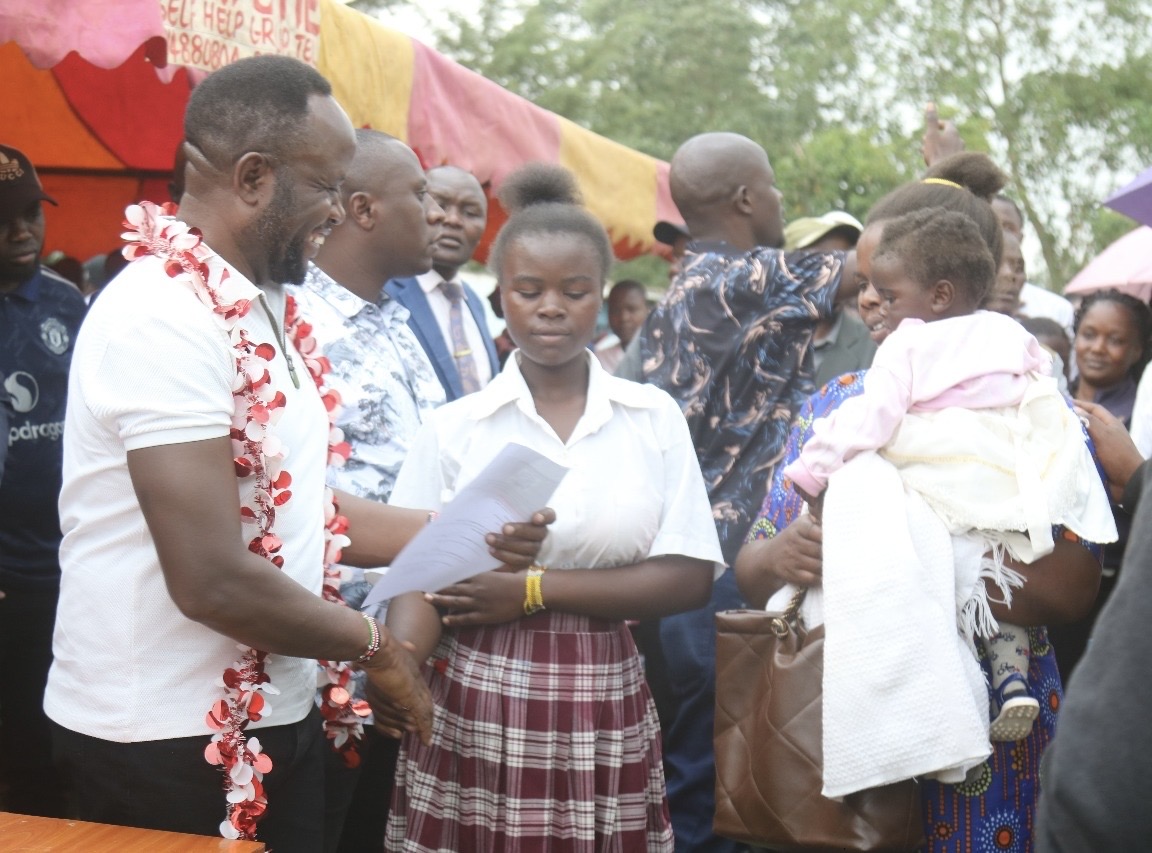

Trans Nzoia County has launched a comprehensive initiative to combat a worrying surge in early pregnancies among school-age girls.
Officials are concerned about rising school dropout rates and declining academic performance, especially among girls.
The county department of education and vocational training has identified poverty, lack of access to menstrual hygiene products and frequent expulsions due to unpaid school fees as key drivers of the crisis.
In response, the county is rolling out targeted interventions, including financial aid, mentorship programmes and the distribution of free sanitary products.
“We are seeing a direct link between poverty and early pregnancies,” said Education CEC Janerose Mutama.
She made the remarks at Muungano Secondary School, where over 210 students recently received bursaries through the Ukombozi Elimu programme, spearheaded by Governor George Natembeya.
“When head teachers send students home repeatedly—especially in impoverished areas—many girls resort to transactional relationships just to survive,” she added.
Mutama said the impact on academic outcomes is already visible. Last year’s poor performance at Muungano Secondary was attributed largely to the high number of girls dropping out due to pregnancy and boys leaving school due to lack of fees.
Through the Ukombozi Elimu bursary, thousands of vulnerable students are now receiving financial support to stay in school through Form Four.
The county has also partnered with grassroots organisations, including the Trans Nzoia Women Caucus, to craft community-based solutions.
A lack of menstrual hygiene products was flagged as a major issue.
“Some girls depend on boyfriends for pads, which often leads to exploitative relationships,” Mutama noted.
To address this, the education department has committed to supplying free sanitary pads to girls and boxers to boys, promoting both dignity and gender equity in schools.
Additionally, a countywide mentorship programme will be launched in partnership with school alumni. The goal is to inspire students to remain focused on their education, despite personal or socio-economic challenges.
“We’ve seen this model work elsewhere,” Mutama said.
“It’s time we bring it home to Trans Nzoia.”
Outreach campaigns are also underway in high-risk subcounties such as Endebess, Kwanza and Saboti, offering education on abstinence and the long-term benefits of staying in school.
Calling for accountability, Mutama urged school administrators and law enforcement to take a firm stance against those responsible for impregnating underage girls.
“These men must be held accountable. They should not only face legal action but also be compelled to support the children they father—while the girls are supported to return to school.”
Mutama also highlighted the stigma that young mothers often face upon returning to school, saying it continues to affect their academic performance.
“We must create a supportive environment for these girls. Education is their right, not a privilege.”
She encouraged students to stay focused and avoid early sexual activity.
“You are in school for a season. Success will give you the freedom to live your life on your own terms. Don’t let early sexual engagement derail your future.”
According to the 2022 Kenya Demographic and Health Survey, 18 per cent of adolescent girls aged 15–19 in Trans Nzoia had been pregnant, placing the county among those with the highest teen pregnancy rates in Kenya.











.jpg&w=3840&q=100)


